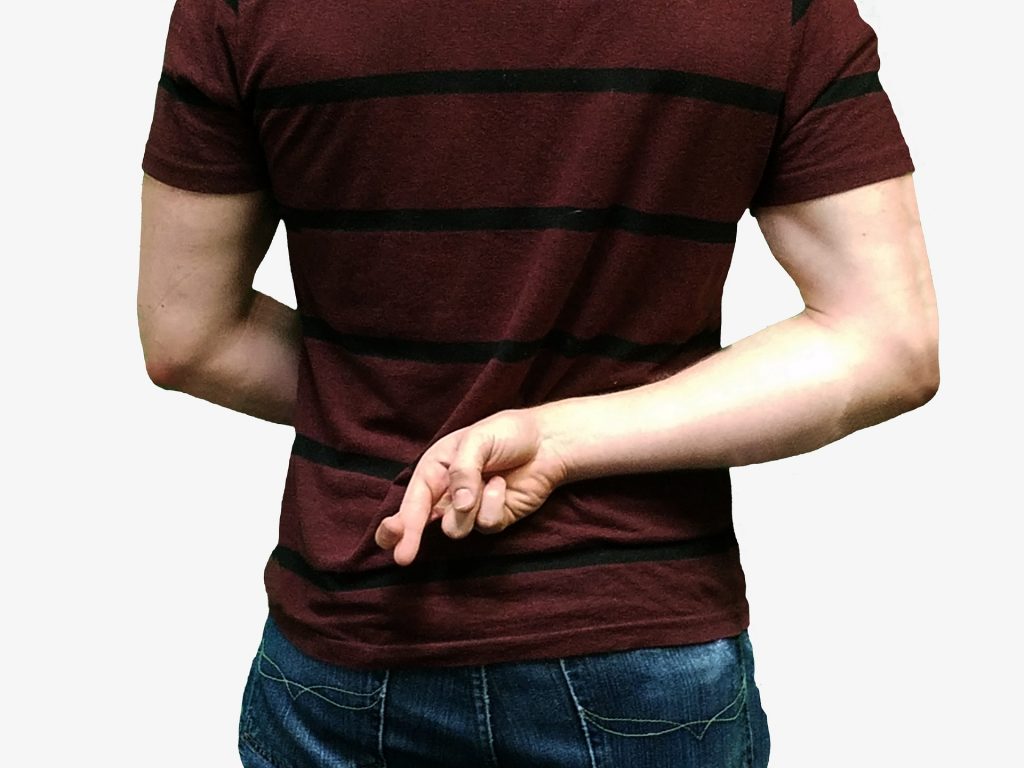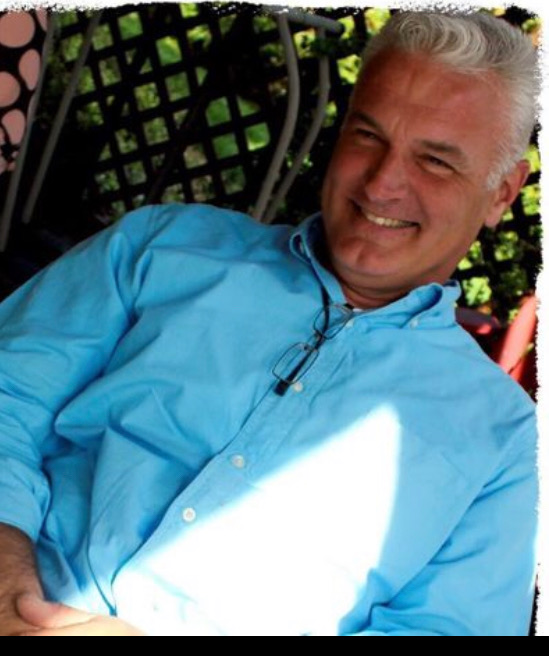“Will you give me your debit card and PIN please? I just need a few bucks.”
“Can I borrow your new pickup truck? I need to haul some gravel for my landscaping. I won’t put a scratch on it. Promise.”
“Can I borrow $20 til payday? I’ll pay you back the minute I get paid.”
“Well?”
Who do you trust implicitly? Have you ever given it much thought?
Is trust “all or nothing” or, do we apply different levels of trust person to person?
What is trust and why does it matter? Really?
I have always heard that trust is something we earn. Someone told me recently that trust is something you give. It’s reasonable to say that both descriptions are true. It seems to me that trust is both earned and given.
As time is invested in someone, our ability (or inability) to trust them tends to be the very foundation for how far we go in the relationship.

Merriam-Webster defines trust as: “assured reliance on the character, ability, strength, or truth of someone or something.”
My experience has taught me that when it comes to people and relationships, “trust” is simply a prediction of the quality of decisions a person will make in the future.
When addiction is involved I believe that someone’s trustworthiness is directly relative to their capacity for self-love.
“Wait, what?” That may seem like an odd statement and, you might be wondering how trust and self-love have anything at all to do with one another. Allow me to share.
Understand first, that I believe love is active — something you do, more so than something you say or feel. Tell me a thousand times you love me and it means nothing if your actions don’t follow.
Self-love is similar in that it means nothing to say that you love your life, while sitting on the sidelines and making yourself a victim of (insert excuses here), and making some really bad choices along the way.
Some simple acts of self-love are things such as purposely taking care of yourself, eating reasonably healthy, staying active, and investing time and effort in relationships. I see this as active gratitude for “the gift” that is your life.
Some deeper aspects of self-love have a lot to do with one’s actions when nobody’s looking. This is the “character” spoken of in Merriam-Webster’s definition of trust.
For those who value their character, the choices they make when nobody is looking, are rarely different than those they make when everyone can see.
For the addicted, decisions to drink or use are often made in hiding, in large part because they know no one will approve. Protecting one’s character with good choices, is not only an act of self-love, but an act of love and respect for those who might suffer from your decisions.
Herein lies the difficulty for the alcohol or drug abuser.
Their choices, while under the influence or not, are destructive to themselves and their loved ones. What’s more, those choices aren’t made with the thought of protecting much of anything, except the opportunity to drink again tomorrow.
Mark Twain once said, “If you tell the truth, you don’t have to remember anything”.
Guilt and shame from those choices can be softened briefly with lies. The problem with lies is that they require more lies to cover the previous lies, setting a certain trap of forgetting which lie was told and to whom.

While under the influence, it becomes really very easy to ignore your character and the consequences of your choices. And then, morning comes, you’ve slept it off and your mind starts to race with guilt, shame and the best way to try and cover up what you did last night, until…you can get to the next drink or pill.
Twain’s advice works for the most part, except that the deeper a person goes into addiction, the more difficult it becomes for them to even recognize the truth.
For those of you who have lived with someone battling addiction to alcohol or drugs, you’ve watched, in abject disbelief, as a person self-destructs. Substance abuse can begin innocently enough, and over a long period of time, but once it has moved in permanently, you begin to see that this person, someone you once believed you could trust, will now do ANYTHING to feed their addiction.
Sadly, many addictions start with medication prescribed by a doctor, such as opiates for pain, or other drugs commonly prescribed for anxiety.
Addiction and abuse doesn’t normally happen immediately, although they can.
Many, including myself, believe that alcohol addiction is even more difficult to detect, and subsequently to battle, because alcohol is so pervasive and widely accepted in our culture. It mostly happens over an extended period of time, which is the very thing that makes it so difficult to detect as it’s happening. Often, it’s a drawn out process, so to speak, and happens over years.
Early on in the process, your trust in them is still intact, so you don’t really inquire deeper into some of the seemingly minor events that begin to unfold.
“How did the car get that dent in the bumper?”
“Where is the money that was in my sock drawer? I thought I had few hundred bucks in there.”

So, you scratch your head, and tell yourself that your memory isn’t what it used to be. You may even ask a few questions of your loved one with a patient, empathetic ear. They’ll respond with, “I have no idea how that dent got there or where the money could be.”
Ah, the crafty turnaround.
Then, they’ll ask you “Did you bump into someone in the parking lot at work and not realize it?” Or, “You probably used the money for something and just forgot.” The turnaround is a classic tool for the addicted.
In retrospect, it’s easier to see that turnaround statements are a deflection from having to face the truth that they know, but that which you haven’t uncovered…yet. As the process unfolds and the abuse becomes apparent, the intensity of these events begins to increase.
Along the way, you’ve begun to doubt that this person is telling you everything about the swirl of crazy things that seem to keep “happening to them”. A bigger dent in the car, inability to hold a part-time job for very long, more frequent anger over things that were once not a very big deal.
You eventually learn that the dent in the car happened when she backed into a parked car at the grocery, under the influence, then left the scene; or that he used the money in the sock drawer to buy alcohol.
You also learn that trust can evaporate in an instant.
So, will we ever be able to trust them again? Should we?
To my Dear Addicted Friends and Loved Ones:
We want to trust you again. However, your choices have changed the situation, for now and maybe forever. That will be up to you. You’ve forced us to love you in a very different way, a way that often seems insensitive and uncaring, because we’ve had to set some boundaries that you aren’t used to having. Boundaries that protect us from the consequences of your actions, and boundaries which make it clear to you, that you will now have to take care of yourself.
It has to be this way. We can’t carry you for the rest of our lives, although at one point we may have been willing to. We can only point you in the direction of help now, but we can’t make you take it. You have set these conditions. We must enforce them. We now see our mistakes in making excuses for the poor decisions you’ve made while addicted.
Those decisions to lie, cheat or even steal from someone who has tried to help you. Our mistake in believing you each time you said to us “I’m sorry, I will change this time.” We’ve watched you live two lives, far too long.
One as the kind, generous, capable person that you really are, beneath the layers of guilt and shame. The other as drunk, reckless and capable of destroying yourself, a stranger, and even someone who has tried to love you. We are changing now and so must you.
What will you do?
We still believe that you can do this. It isn’t going to be easy. You will have to take on the mess you’ve created with a clear head. There are likely to be many tear filled moments ahead — cleansing you; washing away the residue of time wasted, and people you’ve hurt; sadly, mostly yourself.

It’s going to take a while to rebuild your life, but you can do this. Other people are doing it right now! And, as long as we can see genuine humility and a desire to change this, once and for all, followed with action — every single day, we will help you, as best we can with the experiences you’ve given us.
My wish for you is that this is the moment you decide to make this change.
This is the only hope we have for trusting you again.

And you will show us what you will do.

Recent Comments